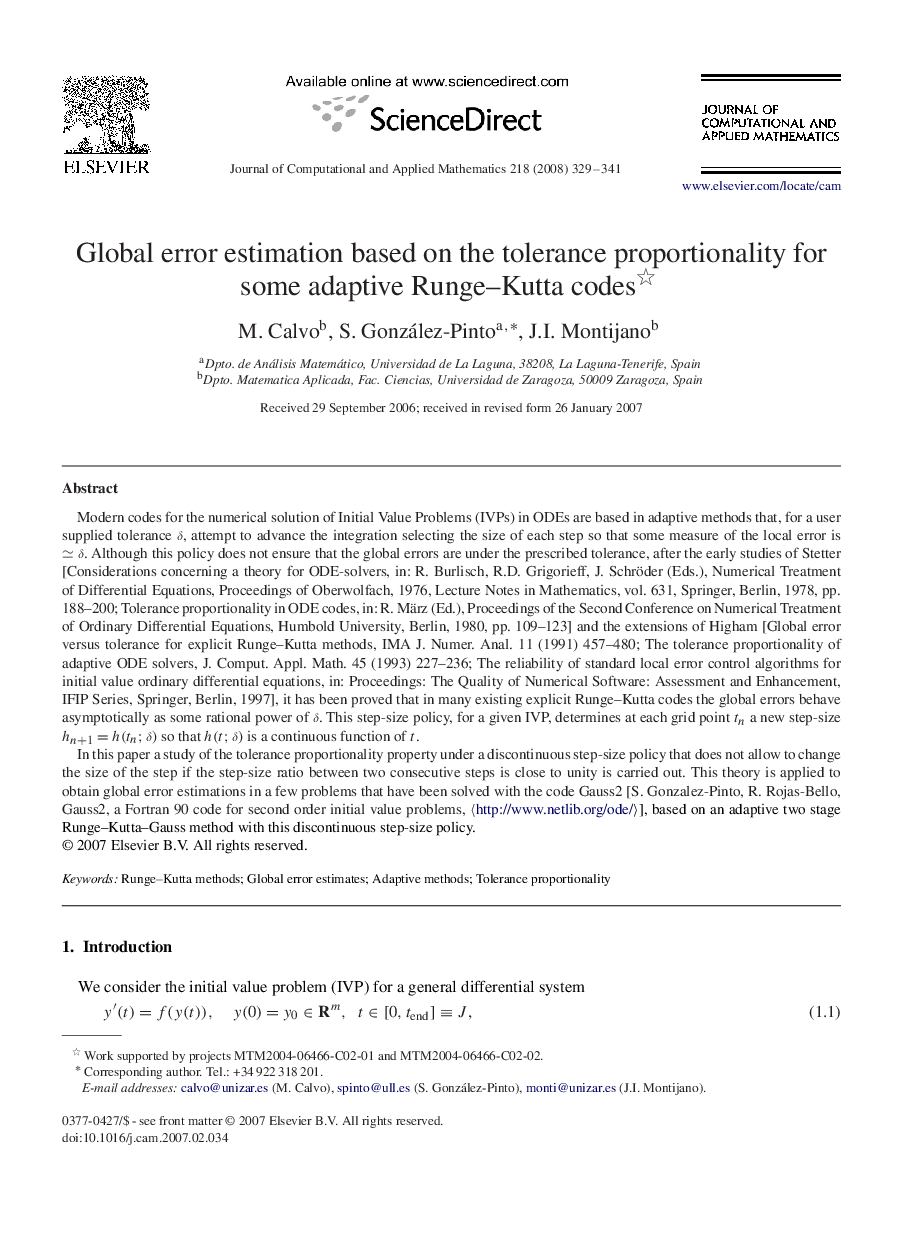| Article ID | Journal | Published Year | Pages | File Type |
|---|---|---|---|---|
| 4642079 | Journal of Computational and Applied Mathematics | 2008 | 13 Pages |
Modern codes for the numerical solution of Initial Value Problems (IVPs) in ODEs are based in adaptive methods that, for a user supplied tolerance δδ, attempt to advance the integration selecting the size of each step so that some measure of the local error is ≃δ≃δ. Although this policy does not ensure that the global errors are under the prescribed tolerance, after the early studies of Stetter [Considerations concerning a theory for ODE-solvers, in: R. Burlisch, R.D. Grigorieff, J. Schröder (Eds.), Numerical Treatment of Differential Equations, Proceedings of Oberwolfach, 1976, Lecture Notes in Mathematics, vol. 631, Springer, Berlin, 1978, pp. 188–200; Tolerance proportionality in ODE codes, in: R. März (Ed.), Proceedings of the Second Conference on Numerical Treatment of Ordinary Differential Equations, Humbold University, Berlin, 1980, pp. 109–123] and the extensions of Higham [Global error versus tolerance for explicit Runge–Kutta methods, IMA J. Numer. Anal. 11 (1991) 457–480; The tolerance proportionality of adaptive ODE solvers, J. Comput. Appl. Math. 45 (1993) 227–236; The reliability of standard local error control algorithms for initial value ordinary differential equations, in: Proceedings: The Quality of Numerical Software: Assessment and Enhancement, IFIP Series, Springer, Berlin, 1997], it has been proved that in many existing explicit Runge–Kutta codes the global errors behave asymptotically as some rational power of δδ. This step-size policy, for a given IVP, determines at each grid point tntn a new step-size hn+1=h(tn;δ)hn+1=h(tn;δ) so that h(t;δ)h(t;δ) is a continuous function of tt.In this paper a study of the tolerance proportionality property under a discontinuous step-size policy that does not allow to change the size of the step if the step-size ratio between two consecutive steps is close to unity is carried out. This theory is applied to obtain global error estimations in a few problems that have been solved with the code Gauss2 [S. Gonzalez-Pinto, R. Rojas-Bello, Gauss2, a Fortran 90 code for second order initial value problems, 〈〈http://www.netlib.org/ode/〉〉], based on an adaptive two stage Runge–Kutta–Gauss method with this discontinuous step-size policy.
